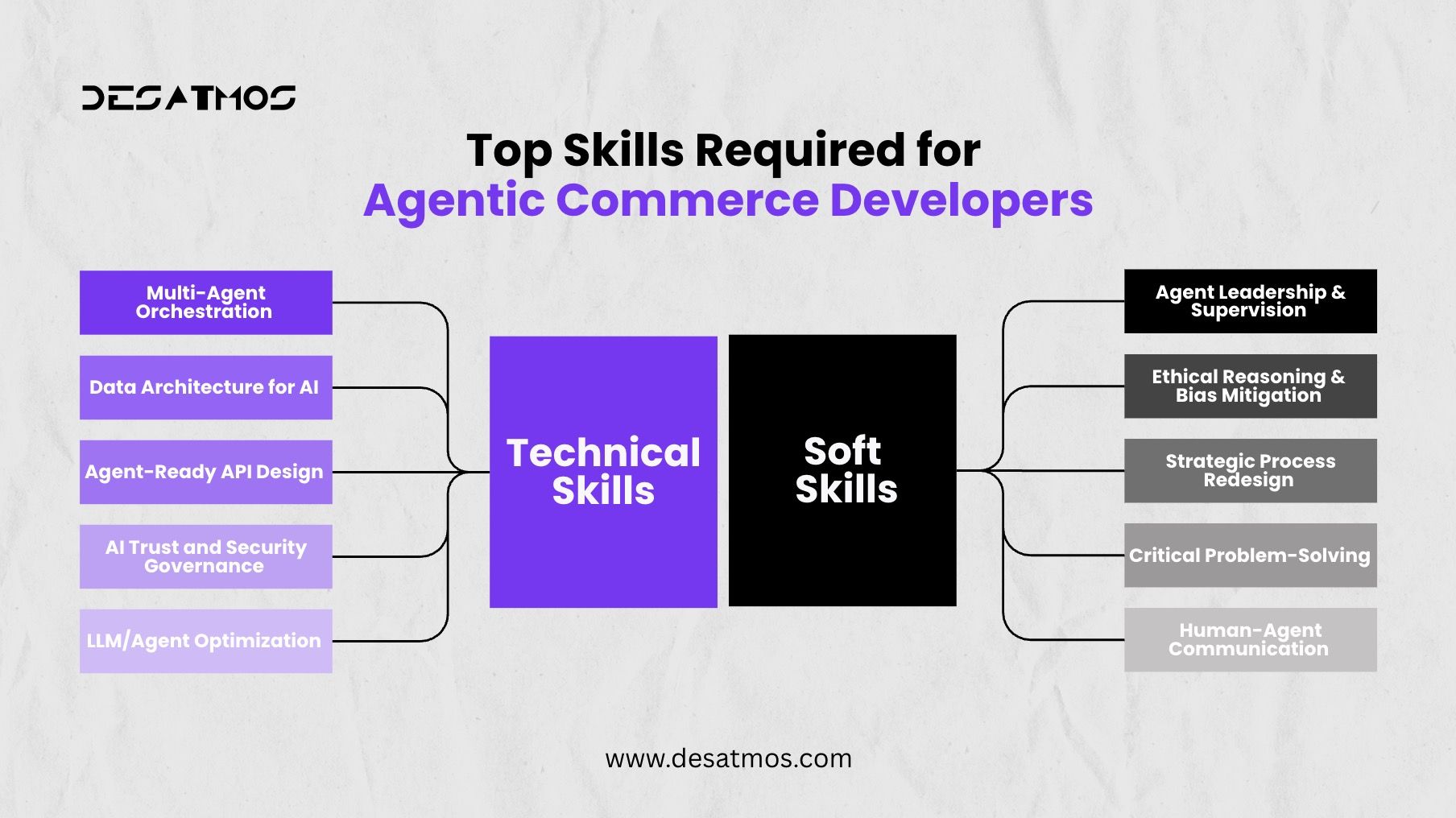An Agentic Commerce developer builds, integrates, and governs autonomous AI agents and the necessary backend infrastructure that enable complex, goal-driven commerce tasks with minimal human intervention. Following are the top agentic commerce developer skills you must have apart from technical and non-technical skills:
Architecting and programming a coordinated system where multiple specialized AI agents (e.g., search, negotiation, payment) work together to fulfill a complex commerce goal.
Developing and optimizing the instructions (prompts) for large language models (LLMs) and fine-tuning custom models to ensure agents execute specific commerce tasks accurately and efficiently.
Writing code that allows the AI agents to seamlessly access and execute actions using external tools, such as the commerce platform's inventory, CRM, or payment processing APIs.
Implementing Retrieval-Augmented Generation (RAG) using vector databases to provide agents with real-time, context-specific knowledge (product data, reviews, customer history) beyond their initial training.
Creating and maintaining low-latency, scalable commerce APIs optimized for machine-to-machine interaction, crucial for fast and reliable agent operations.
Programming self-executing contracts (e.g., using Solidity on blockchain) for tokenized loyalty programs, escrow, or decentralized payments within the agentic flow.
Implementing cryptographic techniques and protocols (e.g., tokenized identity, OAuth 2.0) to authenticate AI agents and secure their transactions against fraud and unauthorized access.
Building data pipelines using technologies like Kafka to feed agents with fresh, real-time data on inventory levels, competitor pricing, and demand signals for dynamic decision-making.
Experience in deploying, scaling, and monitoring large-scale agentic systems using cloud platforms (AWS, Azure, GCP) and MLOps practices for continuous integration and delivery.
Proficiency with specialized frameworks like LangChain or AutoGen for defining agent workflows, managing state, and delegating subtasks in a structured manner.
Why Mastering Objections Matters:


